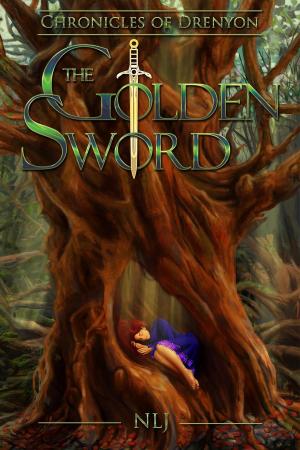| Author: | G. L. Mackey | ISBN: | 9781624881879 |
| Publisher: | BookBaby | Publication: | October 26, 2012 |
| Imprint: | Language: | English |
| Author: | G. L. Mackey |
| ISBN: | 9781624881879 |
| Publisher: | BookBaby |
| Publication: | October 26, 2012 |
| Imprint: | |
| Language: | English |
It was 1947, and I was a young man, enamored with the thought of being a newspaper reporter. Not just any reporter, but “Ace” newspaper reporter, for the Muskegon Chronicle, my home town’s local newspaper. One day I proudly marched into the office of the editor and announced my intention of being just that. The man honored me with an assignment, to prove my mettle. I was to interview an enigmatic old man, known as “the Story Weaver” for his ability to summon tales from everyday happenings. I immediately suspected that the editor had sent me on a wild goose chase, that there really was no such person, but in short order I found the old man right where the editor said he would be: Upstairs, in the children’s section, at Hackley Public Library, weaving his tales to the delight of the children. The old man was not about to make my assignment easy. Every question I asked as to his identity, or his origins went unanswered, but with the simple act of tossing a wad of paper on the floor, a small boy fired the imagination of the Story Weaver, and I became witness to the old man’s unique ability. The first story the old man told, he called, The Epsilon Factor. It was about a young boy who lived in Muskegon’s distant future, who one day learned that the world around him was really quite different from what he had been led to believe. Predestination Paradox was what the Story Weaver called his next story. He told the tale of a five year old boy who had traveled backward through time on a very noble mission, knowing full well that he would pay dearly for it, whether he succeeded, or not. The Story Weaver lapsed unexpectedly into a third story that he called, Cub Cadets. It was about a maverick young flier, who one day learned the lessons of discipline and team work, the hard way. The fourth, and final story that I would ever hear the Story Weaver tell, was called, Bradley, The Warrior. It was about a local high school drama class’s production of the epic classic Beowulf the Warrior that went horribly and perhaps humorously, wrong, when their on location set was invaded by their own, very real, Grendel. As the old man finished his last story, I could not help but press him again to tell me who he was. But the answer he gave me was one I could not possibly accept.
It was 1947, and I was a young man, enamored with the thought of being a newspaper reporter. Not just any reporter, but “Ace” newspaper reporter, for the Muskegon Chronicle, my home town’s local newspaper. One day I proudly marched into the office of the editor and announced my intention of being just that. The man honored me with an assignment, to prove my mettle. I was to interview an enigmatic old man, known as “the Story Weaver” for his ability to summon tales from everyday happenings. I immediately suspected that the editor had sent me on a wild goose chase, that there really was no such person, but in short order I found the old man right where the editor said he would be: Upstairs, in the children’s section, at Hackley Public Library, weaving his tales to the delight of the children. The old man was not about to make my assignment easy. Every question I asked as to his identity, or his origins went unanswered, but with the simple act of tossing a wad of paper on the floor, a small boy fired the imagination of the Story Weaver, and I became witness to the old man’s unique ability. The first story the old man told, he called, The Epsilon Factor. It was about a young boy who lived in Muskegon’s distant future, who one day learned that the world around him was really quite different from what he had been led to believe. Predestination Paradox was what the Story Weaver called his next story. He told the tale of a five year old boy who had traveled backward through time on a very noble mission, knowing full well that he would pay dearly for it, whether he succeeded, or not. The Story Weaver lapsed unexpectedly into a third story that he called, Cub Cadets. It was about a maverick young flier, who one day learned the lessons of discipline and team work, the hard way. The fourth, and final story that I would ever hear the Story Weaver tell, was called, Bradley, The Warrior. It was about a local high school drama class’s production of the epic classic Beowulf the Warrior that went horribly and perhaps humorously, wrong, when their on location set was invaded by their own, very real, Grendel. As the old man finished his last story, I could not help but press him again to tell me who he was. But the answer he gave me was one I could not possibly accept.















